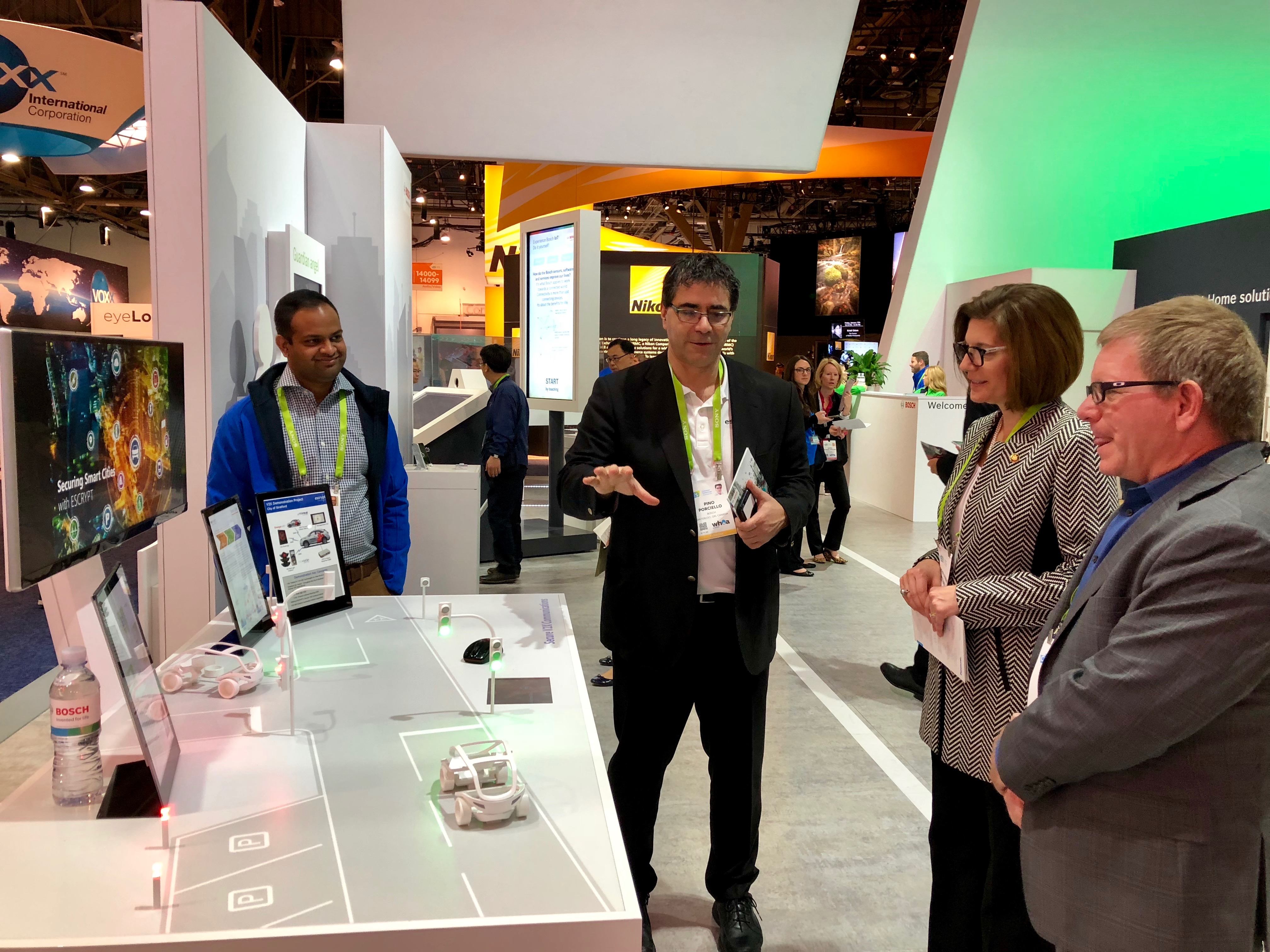Las Vegas, Nev. – U.S. Senator Catherine Cortez Masto (D-Nev.) today attended the annual Consumer Electronics Show (CES) and toured the exhibits, while discussing several bills she is leading in the Senate that would create more opportunities and resources for American cities to become SMART communities, encourage young women to pursue STEM careers, safely integrate critical Unmanned Aircraft Systems use and expand broadband access to urban and rural Nevada. These are part of her efforts in the Senate to accelerate Nevada’s transformation into an Innovation State by fostering innovation, attracting investments, creating jobs and making the state a leader in developing new technology.
“CES is not only a platform for companies to introduce what’s new and next, but also a place where some of the best minds in the industry come together to discuss solutions for the twenty-first century. Big ideas that enhance our way of life are a driving force for economic growth and innovation. It’s exciting to see so much of it happening right here in Nevada. We must use the emergence of these new ideas and concepts as a way to help our communities thrive. This means using innovative technologies to improve our transportation systems, to ensure a diverse and educated workforce STEM education, and investing in our communities, both big and small, by ensuring access to broadband and connecting every Nevadan to our growing digital world.”
BACKGROUND
Under Cortez Masto’s Innovation State initiative, she introduced/cosponsored the following legislation in 2017:
- The Moving FIRST Act: a bill that would enhance the transportation systems of American communities through the use of innovative technology. This legislation establishes and builds on the successes of the 2015 Strengthening Mobility and Revolutionizing Transportation (SMART) Cities Challenge administered by the U.S. Department of Transportation (USDOT) by expanding the opportunity for more communities – both urban and rural – to compete for resources that will fund efficient, creative and innovative transportation projects that solve local challenges.
- Code Like a Girl Act: legislation that would create two National Science Foundation (NSF) grant programs to encourage young girls to pursue careers in computer science. A companion bill, H.R. 3316, was introduced by Rep. Jacky Rosen (D-Nev.) in the House of Representatives.
- The SPEED Act: a measure that would accelerate the deployment of new broadband infrastructure to both rural and urban areas by streamlining the permitting process for telecommunications equipment that is installed in locations that have already been subjected to historical or environmental reviews.
- The Safe Drone Act of 2017: legislation that would advance the development of unmanned aircraft systems (UAS) and build on the Federal Aviation Administration’s (FAA) efforts to safely integrate them into the National Airspace System. This includes through developing a trained UAS workforce, extending FAA UAS test sites like the one in Nevada, and advancing on a UAS air traffic control system for safety.
###
